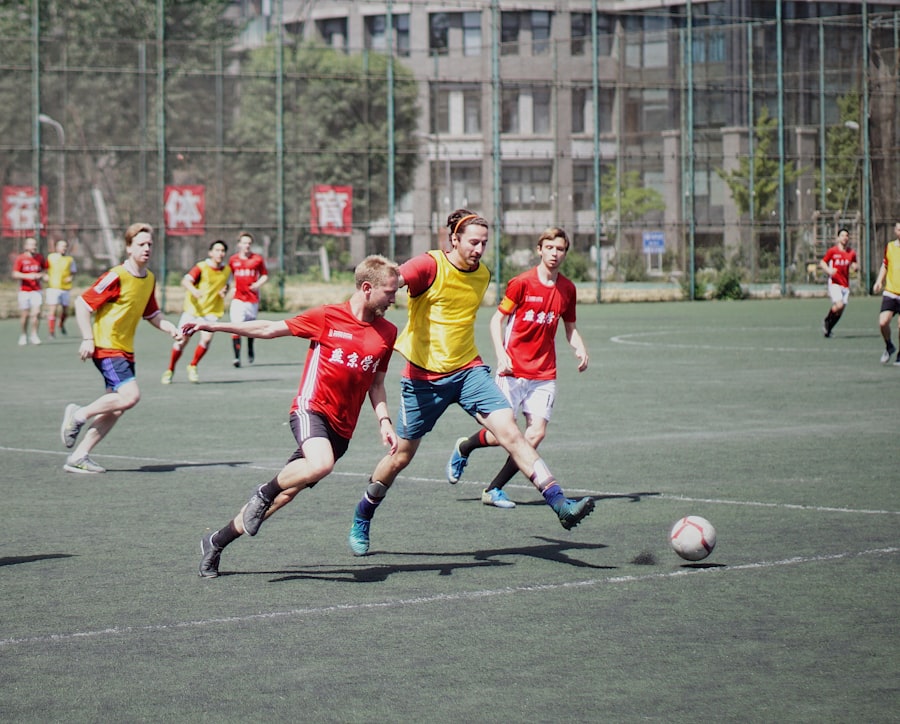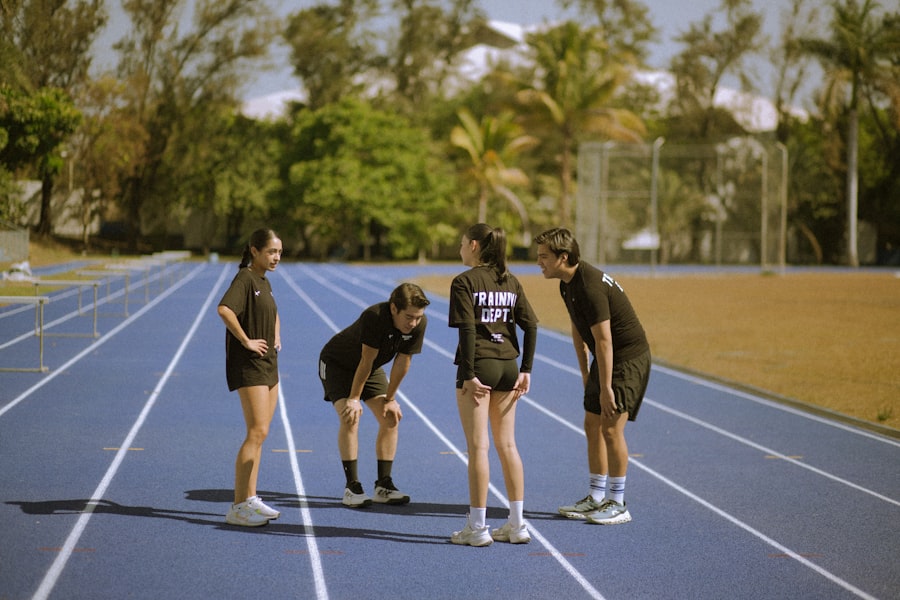In the highly competitive world of sports, representation agencies play a pivotal role in shaping the careers of athletes. These agencies serve as intermediaries between athletes and various stakeholders, including teams, sponsors, and media outlets. The importance of these agencies cannot be overstated; they provide essential services that allow athletes to focus on their performance while ensuring that their interests are protected.
Representation agencies are equipped with the expertise and resources necessary to navigate the complexities of the sports industry, which can often be overwhelming for individual athletes. Moreover, representation agencies help level the playing field for athletes, particularly those who may not have the experience or knowledge to negotiate contracts or endorsements effectively. By leveraging their industry connections and understanding of market dynamics, these agencies can secure better deals for their clients.
This is especially crucial in a landscape where financial disparities can significantly impact an athlete’s career trajectory. For instance, a well-represented athlete may secure a lucrative contract that not only provides immediate financial benefits but also enhances their long-term earning potential through endorsements and sponsorships.
Key Takeaways
- Representation agencies play a crucial role in supporting and advancing athletes’ careers.
- They empower athletes by handling contract negotiations and securing favorable deals.
- Agencies significantly impact athletes’ brand endorsements and marketing opportunities.
- They assist in managing athletes’ public image and overall career development.
- The future of representation agencies involves evolving strategies to further empower and support athletes.
How Representation Agencies Empower Athletes
Representation agencies empower athletes by providing them with a support system that extends beyond mere contract negotiation. They offer guidance on career decisions, helping athletes make informed choices about their professional paths. This empowerment is particularly vital during critical junctures in an athlete’s career, such as transitioning from college sports to professional leagues or navigating retirement.
Agencies often employ former athletes or industry veterans who understand the unique challenges faced by athletes, thus providing invaluable mentorship and advice. Additionally, representation agencies play a crucial role in educating athletes about their rights and responsibilities. Many athletes, especially those entering the professional realm for the first time, may not fully grasp the intricacies of contracts, sponsorship agreements, or even financial management.
Agencies often provide educational resources and workshops that equip athletes with the knowledge they need to make sound decisions. This empowerment fosters a sense of agency among athletes, allowing them to take control of their careers rather than being passive participants in a system that can often exploit their talents.
The Role of Representation Agencies in Negotiating Contracts

Negotiating contracts is one of the most critical functions of representation agencies. The stakes are high in professional sports, where contracts can be worth millions of dollars and can significantly impact an athlete’s financial future. Representation agencies bring a wealth of experience to the negotiation table, employing strategies that maximize their clients’ earnings while ensuring favorable terms.
They understand the nuances of contract language and can identify potential pitfalls that an athlete might overlook. For example, an agency might negotiate not only for a higher salary but also for performance bonuses, health benefits, and other perks that enhance an athlete’s overall compensation package. They also work to ensure that contract terms are favorable in terms of duration and exit clauses, which can provide athletes with more flexibility in their careers.
The ability to negotiate effectively can mean the difference between a mediocre contract and one that sets an athlete up for long-term success.
The Impact of Representation Agencies on Brand Endorsements
| Metric | With Representation Agency | Without Representation Agency | Impact |
|---|---|---|---|
| Average Number of Brand Endorsements per Year | 8 | 3 | +167% |
| Average Endorsement Deal Value | 120,000 | 45,000 | +167% |
| Negotiation Time (weeks) | 2 | 5 | -60% |
| Brand Match Quality Score (1-10) | 8.5 | 6.0 | +42% |
| Contract Renewal Rate (%) | 75 | 40 | +35% |
| Exposure Reach (millions) | 50 | 20 | +150% |
Brand endorsements are a significant revenue stream for many athletes, and representation agencies play a crucial role in securing these lucrative deals. Agencies leverage their networks and industry knowledge to connect athletes with brands that align with their personal values and public image. This alignment is essential; when an athlete endorses a brand that resonates with their audience, it enhances both the athlete’s credibility and the brand’s appeal.
Furthermore, representation agencies help athletes navigate the complexities of endorsement contracts, ensuring that they understand the terms and implications of each deal. They advocate for fair compensation and work to protect their clients’ interests in negotiations with brands. For instance, an agency might secure not only a substantial financial package but also additional benefits such as equity stakes in a company or exclusive promotional opportunities.
This strategic approach to endorsements can significantly enhance an athlete’s brand value and marketability.
Representation Agencies and Athlete Development
Athlete development is another critical area where representation agencies make a significant impact. Beyond contract negotiations and endorsements, these agencies often provide comprehensive support services that focus on an athlete’s overall growth. This includes access to training facilities, coaching staff, nutritionists, and mental health professionals who can help athletes optimize their performance both on and off the field.
Moreover, many representation agencies have established programs aimed at developing young talent. These programs often include mentorship initiatives where experienced athletes share their insights with emerging stars. By fostering a culture of development, representation agencies not only enhance individual athlete performance but also contribute to the overall growth of sports as a whole.
For example, agencies may organize training camps or workshops that focus on skill development, leadership training, and personal branding, equipping athletes with the tools they need to succeed in a competitive environment.
The Role of Representation Agencies in Managing Athlete Public Image

In today’s digital age, an athlete’s public image is more important than ever. Representation agencies play a vital role in managing this aspect of an athlete’s career by crafting and maintaining a positive public persona. They work closely with public relations professionals to develop strategies that enhance an athlete’s visibility while mitigating any potential controversies or negative press.
Agencies often advise athletes on how to engage with fans through social media platforms, helping them build a loyal following while maintaining professionalism. They also prepare athletes for media appearances and interviews, ensuring they convey the right message and uphold their brand image. For instance, if an athlete is involved in a scandal or faces criticism, representation agencies are instrumental in managing the narrative and providing crisis communication strategies to protect their client’s reputation.
The Influence of Representation Agencies on Athlete Career Planning
Career planning is a multifaceted process that requires foresight and strategic thinking. Representation agencies play a crucial role in helping athletes map out their career trajectories by providing insights into market trends, potential opportunities, and risks associated with various paths. They assist athletes in setting realistic goals and developing actionable plans to achieve them.
For example, an agency might advise an athlete on when to enter free agency based on market conditions or suggest alternative career paths such as coaching or broadcasting after retirement. This long-term perspective is essential for ensuring that athletes do not just focus on immediate gains but also consider their future beyond active competition. By facilitating discussions about post-career opportunities and personal branding strategies, representation agencies help athletes transition smoothly into new roles when the time comes.
The Future of Representation Agencies in Empowering Athletes
As the sports landscape continues to evolve with advancements in technology and changes in consumer behavior, representation agencies will need to adapt to remain relevant and effective in empowering athletes. The rise of social media has transformed how athletes connect with fans and brands alike, creating new opportunities for engagement but also new challenges regarding public perception and brand management. In this dynamic environment, representation agencies will likely expand their services to include digital marketing strategies and data analytics to better understand audience engagement and brand performance.
Additionally, as issues such as mental health awareness gain prominence in sports culture, agencies may increasingly focus on holistic athlete well-being as part of their representation model. This shift could lead to more comprehensive support systems that address not only financial aspects but also emotional and psychological needs. The future will also see greater emphasis on diversity and inclusion within representation agencies themselves.
As more athletes from diverse backgrounds enter professional sports, there will be a growing demand for representation that understands and advocates for their unique experiences and challenges. Agencies that prioritize inclusivity will likely find themselves better positioned to serve a broader range of clients effectively. In conclusion, representation agencies are integral to the success of athletes across various dimensions of their careers.
From negotiating contracts to managing public images and planning long-term career strategies, these agencies provide essential support that empowers athletes to thrive in an increasingly complex sports landscape. As they continue to evolve alongside the industry, representation agencies will remain vital partners in helping athletes achieve their goals both on and off the field.



